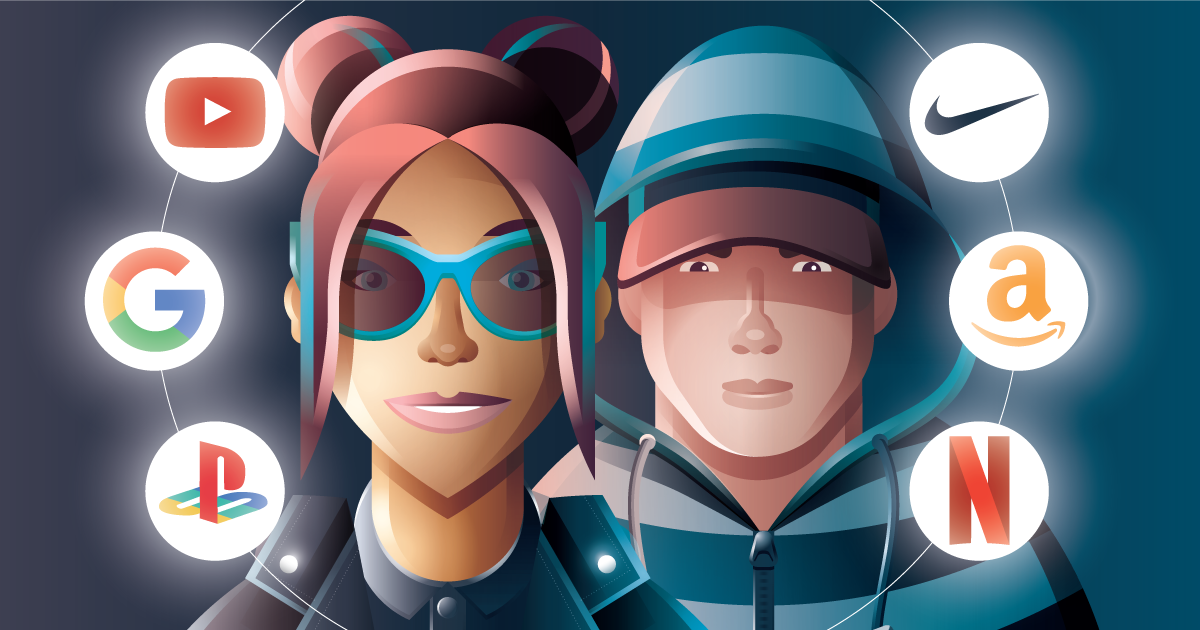Many people associate Gen Z with technology and social media, and for good reason. Gen Z’s top three brands all fall into the tech industry (Google, Netflix, YouTube). About half of all teens spend most of their day online. These online relationships go deeper than the social space, and have even started transitioning to the business world. Two-out-of-three Gen Zers are interested in purchasing through social media platforms directly. 44% purposefully interact with certain posts to better tailor the algorithm to their interests.
Gen Z’s Rise to Influence
Of course, most companies now have social media accounts of their own to attract followers. Why should we care more about Generation Z? It is true that many companies are succeeding online with the Millennial generation. Gen Z will become the most important generation of consumers within the next decade and businesses will have to adapt.
Gen Z accounts for roughly 2 billion people worldwide. They are on pace to become the highest-paid and best-educated generation on the planet. By 2031, Gen Z’s income will increase five times over. They will become the wealthiest generation with an annual income of over $2 trillion. As this generation of young consumers steps into high-paying careers, they become increasingly important as a consumer group. So how can businesses reach this important target market?
Gen Z Attributes
Currently, Gen Z’s trust in major institutions has dropped 10% in 2020 alone. And with 65% of Gen Zers researching a company before they make a purchase, it is obvious that young people want to buy from brands that they trust. Gen Z will lean towards companies that support diversity and environmentalism and will avoid any business involved in scandals or discrimination. This lends itself well to smaller startup companies with an authentic background story.
Given that Gen Z is the most diverse generation, with nearly half of them being people of color and 20% identifying as LGBTQ, it makes sense that inclusivity is a key factor in their perception of a company. Sustainability is also a huge factor, as up to 73% of young people say they would pay more money for a sustainably sourced product.
With the increase in online shopping, connecting technology and business is a clear route to the ever-important Generation Z. If a business can promote their shared values with Gen Z online, they have direct access to this ever-important age group.
The online world is the best way to foster connections between businesses and consumers, as social media platforms act as a two-way method of communication. Businesses can target digital advertisements to the best audience for them, and with 44% of Gen Z consumers purposefully interacting with posts to influence the algorithm and reach the content they are looking for, young consumers are able to find the brands that align best with their own values.
In Conclusion
As the younger generation gets wealthier, startup companies and large corporations alike will soon look to Gen Z as the primary target market worldwide. In order to succeed, these businesses will need to adapt to the soon-to-be most important generation of consumers.


